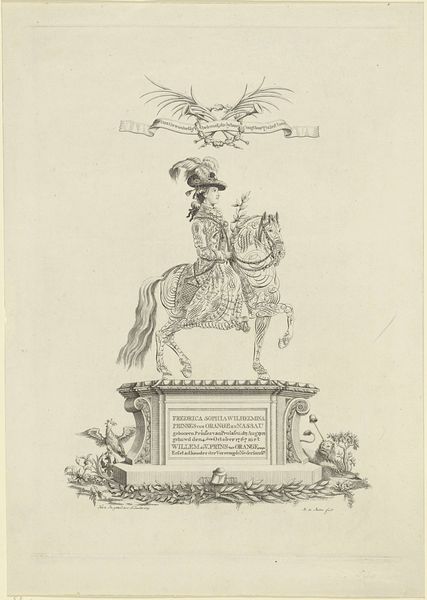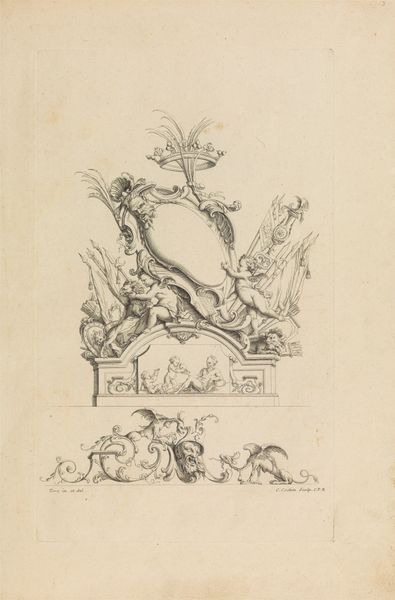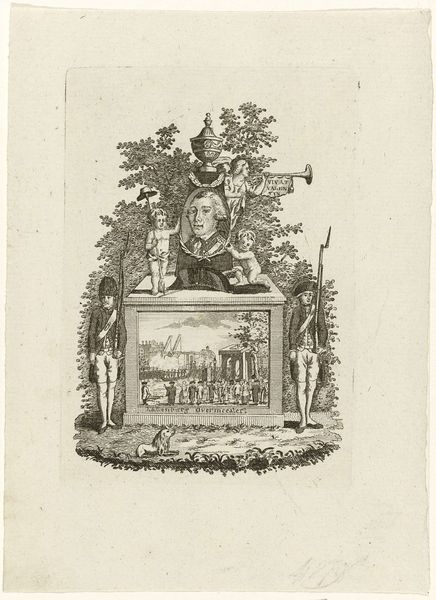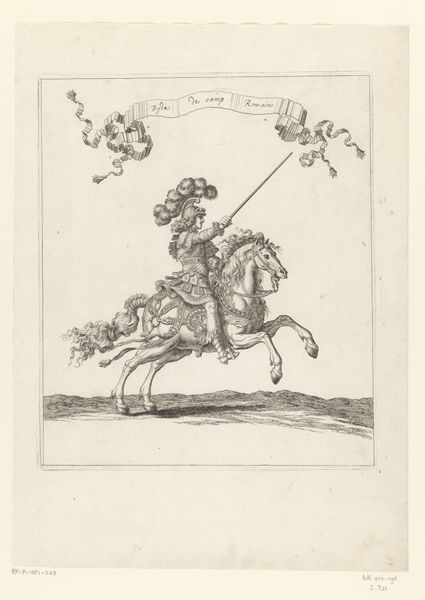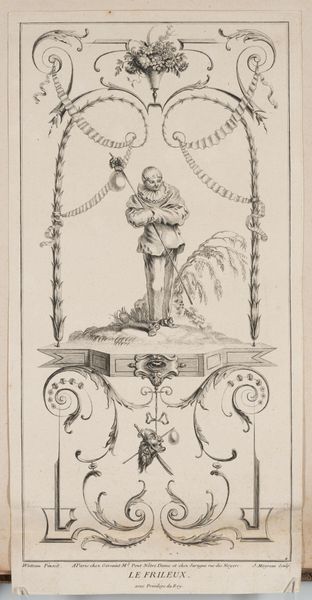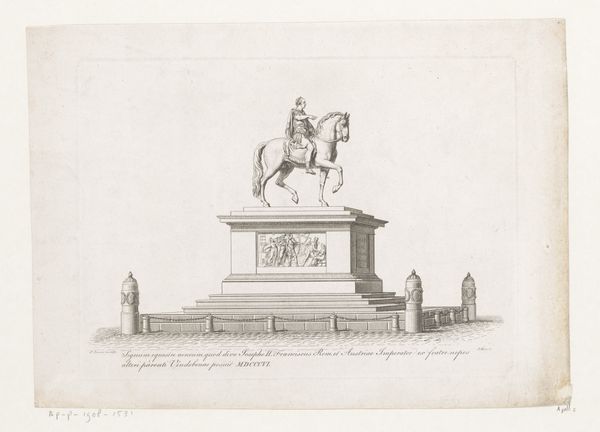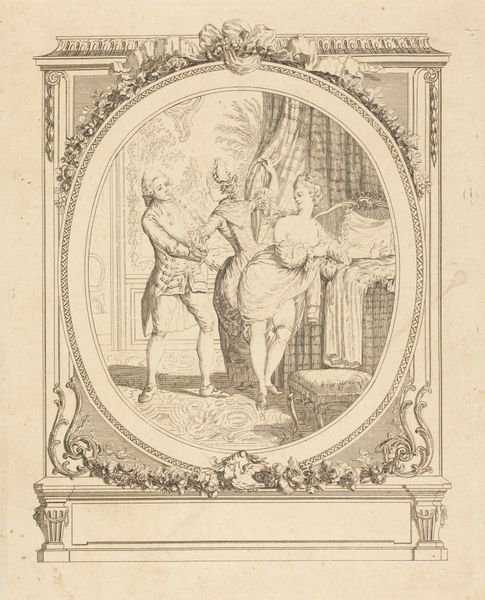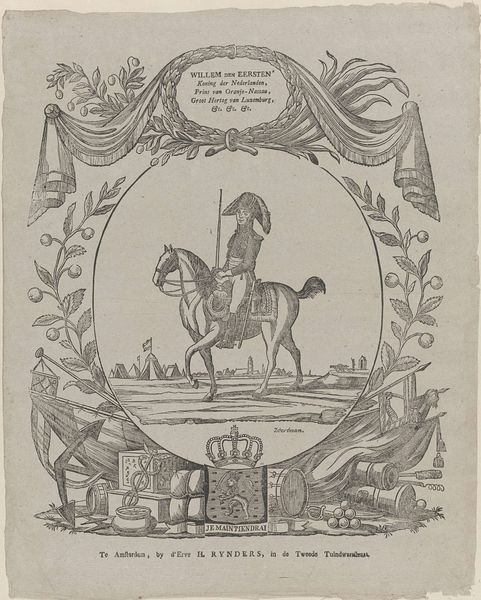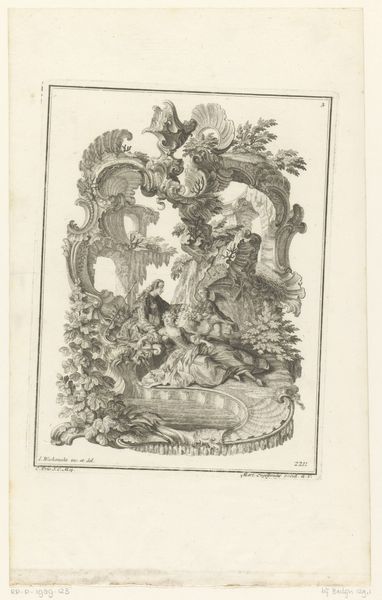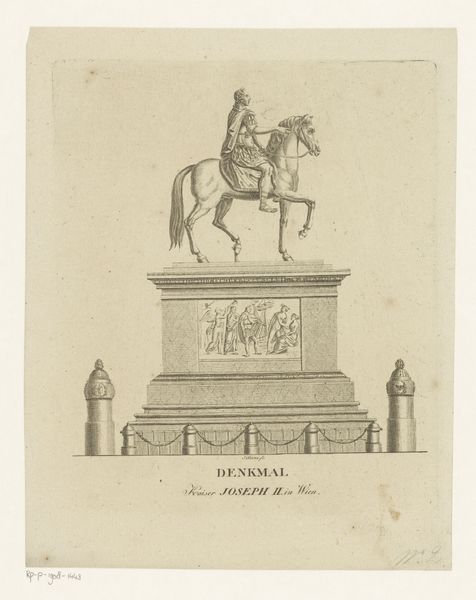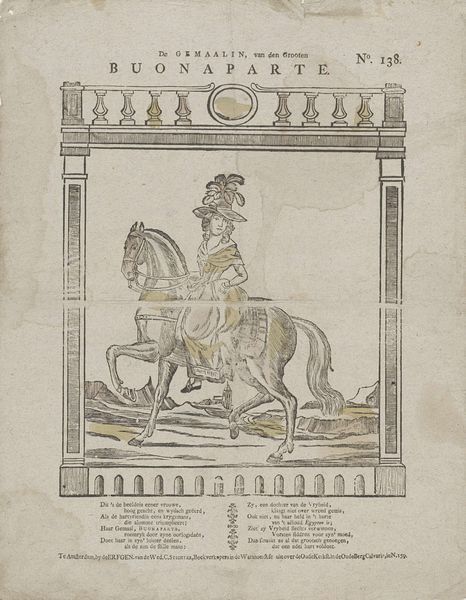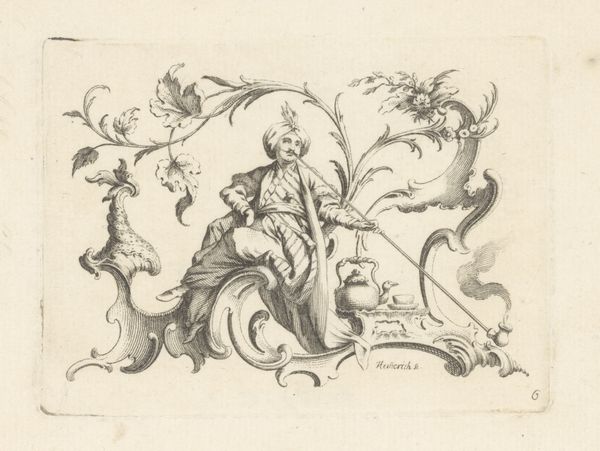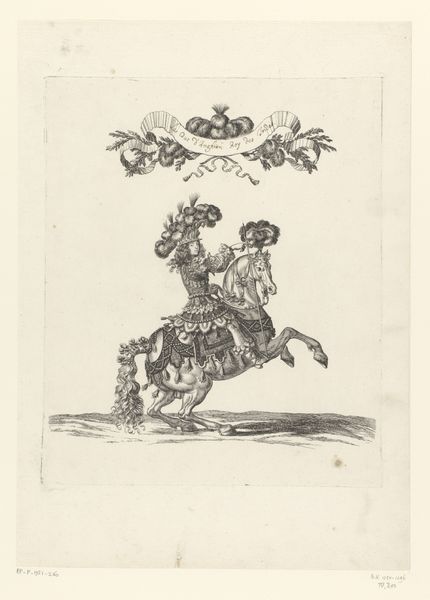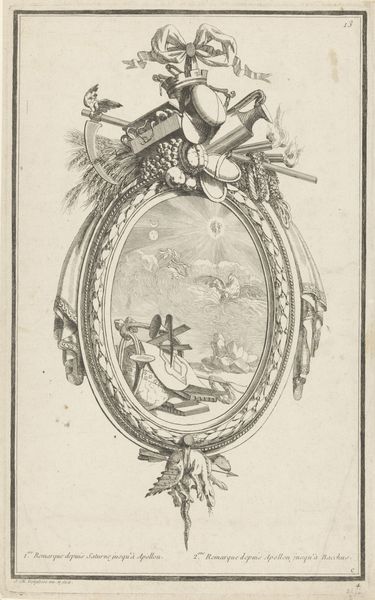
Ruiterstandbeeld van Willem V, prins van Oranje-Nassau c. 1775 - 1805
0:00
0:00
barentdebakker
Rijksmuseum
print, engraving
#
portrait
# print
#
classical-realism
#
history-painting
#
engraving
Dimensions: height 388 mm, width 290 mm
Copyright: Rijks Museum: Open Domain
This is a print by Barent de Bakker depicting the equestrian statue of William V, Prince of Orange-Nassau. Made in the Netherlands, this image embodies the social and political tensions of its time. Equestrian statues have historically symbolized power and authority, associating rulers with military prowess and nobility. In the Dutch Republic, such displays were particularly charged. The House of Orange represented a hereditary form of leadership at odds with the republican ideals and powerful merchant class. The statue itself would have been a statement of political intent, solidifying the Prince's authority, while this print functions as propaganda, disseminating that image to a wider audience. By studying archival records and political pamphlets from the era, we can get a clearer picture of the complex relationship between the Dutch Republic and the House of Orange, understanding how art became a tool in the struggle for power.
Comments
No comments
Be the first to comment and join the conversation on the ultimate creative platform.
